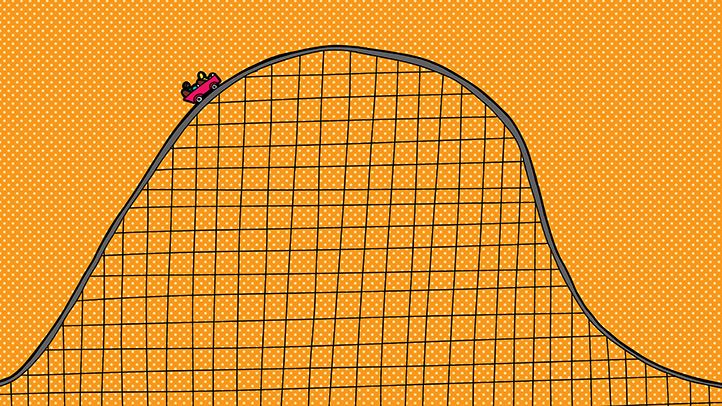A manic episode is a mental disorder that causes a person to have high-flying, unrealistic thoughts, and moods. It can be difficult for someone with this condition to manage their emotions and behaviors, but there are ways to lessen the severity of the symptoms.
In this blog post, we will discuss who might experience a manic episode, what it looks like from start to finish, how you can help yourself or others during an episode, and some therapies that may work best for managing these episodes.
Contents
Who Is a Manic? What Is a Manic Episode?

A manic is someone who experiences a manic episode. A manic episode is a period of abnormally elevated mood, accompanied by hyperactivity, over-talkativeness, and irritability. It can last for days, weeks, or even months.
How Does a Manic Feel During Manic Episode?

A manic person during a manic episode may feel good about everything, even if they’re doing poorly in life.
They will have unrealistic thoughts and ideas that lead them to take risks without thinking of the consequences.
These symptoms are most likely to begin suddenly – perhaps after an argument or visit with family members – but can also start gradually over time.
Symptoms of a Manic Episode
There are many symptoms that one can experience during a manic episode. A person may deny they have an illness, despite any evidence to the contrary.
They often feel invincible and will go on spending sprees even if it means going into debt or taking out loans against their homes or cars.
The symptoms of a manic episode can vary from person to person, but some common symptoms include:
- Having a lot of energy
- Flight of ideas and racing thoughts;
- Decreased need for sleep;
- Feeling extremely happy or irritable;
- Talking very quickly, or jumping from topic to topic;
- Being easily distracted;
- Feeling like you can do anything, or that nothing is impossible
What Can You Do to Manage Mania?

Some psychotherapists specializing in bipolar disorder can offer different types of therapy that have been proven to be effective.
Many times professionals prescribe medications to help during a manic episode.
In some cases, family or friends may need to step in and provide support for the person going through a manic episode.
There are different things that someone dealing with mania might do to better manage their symptoms:
- Take medications as prescribed by a doctor
- Attend therapy as prescribed by a therapist
- Stay connected with friends and family who can offer support
- Avoid any activities that could lead to harm, such as driving recklessly or spending too much money
NOTE: It is important to remember not to take things too personally and to see your friend or family member going through a manic episode as someone who is sick, not just being difficult.
Talking To A Professional
There are different ways to manage a manic episode. The most important thing is for the person with bipolar disorder to seek professional help.
Psychotherapists can provide support and guidance on how to deal with the symptoms of mania, including drug or alcohol abuse, risky behavior, and relationships problems.
Therapists may also help you learn how to identify your triggers so that you can avoid them if possible.
They will teach you coping skills for when symptoms are at their worst and have meetings with family members to make sure they understand the situation as well. This way everyone knows what is going on and why certain behaviors occur.
The therapist will also help you keep a mood chart so that it can be tracked and seen by all. This way, everyone knows how the patient is doing at any given time.
Therapies for Managing a Manic Episode
Many different therapies may work best during a manic episode. Some of these include:
Dialectical Behavioral Therapy (DBT)
Dialectical Behavioral Therapy is a cognitive-behavioral therapy that helps people learn how to manage their emotions. It can be very helpful for people with bipolar disorder;
Cognitive Behavioral Therapy (CBT)
Cognitive-behavioral therapy is a type of psychotherapy that focuses on looking at the relationship between thoughts, feelings, and behaviors. This form of therapy may help people with bipolar disorder think more rationally about their lives;
Psychoanalytic Psychotherapy
A psychoanalytic approach to treatment helps people explore their unconscious thoughts and feelings that may be contributing to their symptoms. This type of therapy can help people understand why they might be feeling manic;
Interpersonal and Social Rhythm Therapy ( IPSRT )
Interpersonal and Social Rhythm Therapy is a type of psychotherapy that focuses on how a person’s relationships, environment, and routine are linked to changes in mood. People with bipolar disorder have often been found to experience life transitions or significant stressors at certain times of the year;
Psychoeducation
Psychoeducation is when someone who has bipolar disorder receives education about their illness. This can help them manage their symptoms better;
Family-Focused Therapy ( FFT )
Family-Focused Therapy is a type of therapy that helps the person with bipolar disorder, as well as their family members, manage symptoms. The ultimate goal is to help everyone live more optimistic lives by teaching good coping skills.
Conclusion
Manic episodes are difficult for anyone to go through. These episodes are serious mental disorders. Therefore, one should not take them lightly.
It is important to have a variety of therapies available to help manage the symptoms. Many different types of psychotherapy can be helpful, as well as medications prescribed by professionals.
Family and friends often need to provide support for the person going through a manic episode. It is also important to remember not to take things too personally.
If you think you or someone you know might be experiencing a manic episode, it is important to seek help from a professional.
If you are looking for affordable Online Counseling MantraCare can help: Book a trial therapy session


